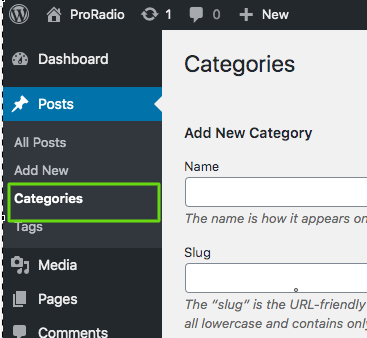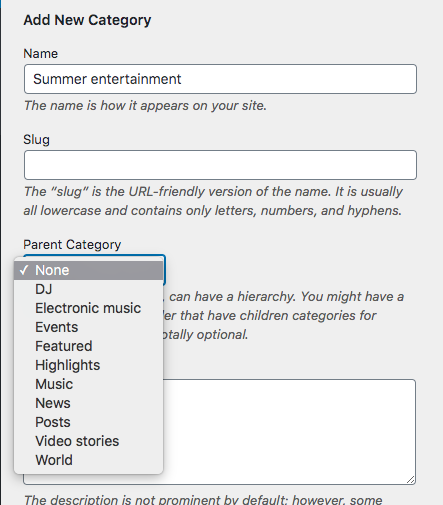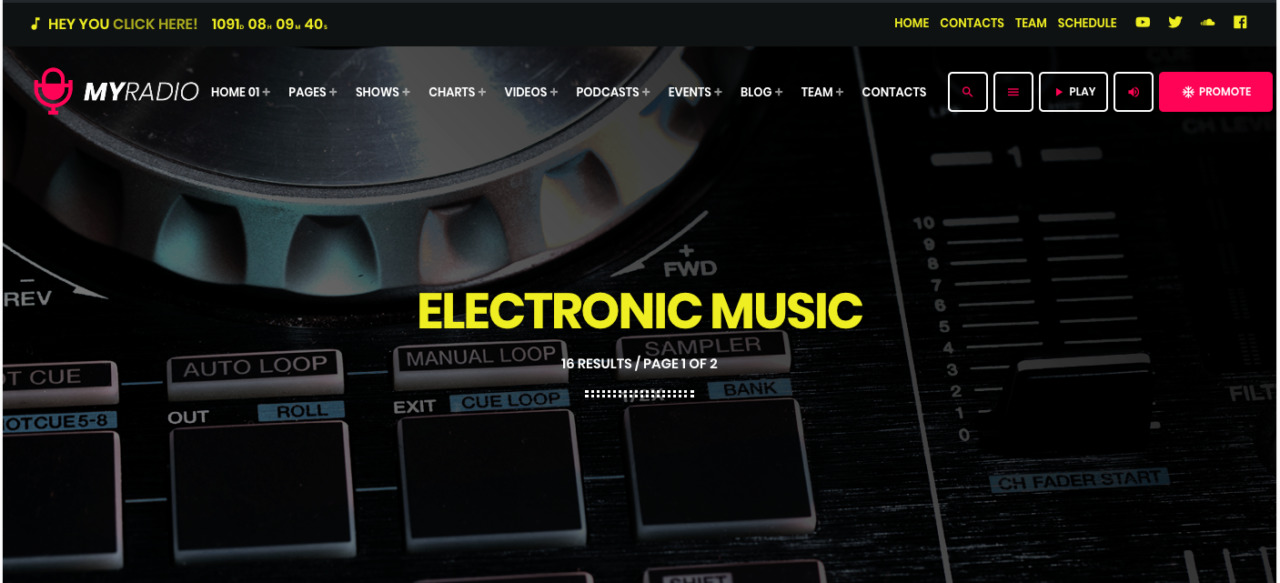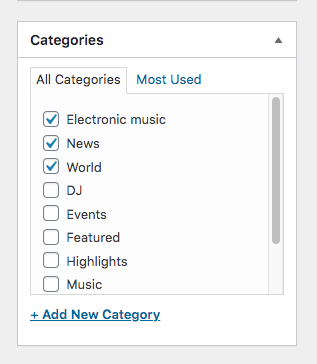Le categorie sono la tassonomia di base utilizzata per classificare i contenuti di un blog. Le categorie sono una funzionalità standard integrata nel core di WordPress, quindi puoi migrare i tuoi post e categorie esistenti da qualsiasi blog esistente senza perdere alcun contenuto o classificazione.
Organizzare i post in categorie ti aiuterà a:
- Estrarre i post per categoria durante la creazione di specifiche pagine di archivio
- Visualizzare i post di categorie specifiche in caroselli, slider o griglie personalizzati creati con Elementor
- Aggiungere un collegamento a una categoria specifica con il Menu
- Organizzare i contenuti in una struttura semanticamente ricca che i tuoi lettori possano utilizzare per ottenere una navigazione significativa
- Creare griglie di categorie con Elementor (usando il widget Griglia di categoria Pro.Radio)
Per creare o modificare le categorie
Passaggio 1: Nel pannello di amministrazione di WordPress, vai su Post e poi fai clic su Categorie.
Passaggio 2: inserisci un nome di categoria (lo slug verrà generato automaticamente). Presta attenzione, se utilizzi parole chiave riservate dal sistema, e verifica che lo slug non si sovrapponga ad una parola chiave riservata. Ad esempio, se crei una categoria chiamata Podcast, lo slug sarà /podcast. Ma questo entrerà in conflitto con il tipo di post "podcast" e dovrai modificare lo slug in seguito per evitare un conflitto.
Puoi impostare una categoria principale se desideri organizzare una struttura gerarchica di categorie e sottocategorie.
Passaggio 3: Aggiungi un'immagine (opzionale). Ciò richiede l'attivazione del plugin di sfondo della tassonomia. L'immagine deve essere almeno 1600 x 900 PX poiché verrà utilizzata come sfondo dell'intestazione durante la visita all'archivio delle categorie.
Al momento assegnare un colore alla Categoria non è possibile, ma abbiamo intenzione di integrare questa funzione in un futuro aggiornamento, così puoi già impostare un colore che verrà utilizzato in futuro.
Importante:
Quando crei un post sul blog, devi semplicemente selezionare la categoria utilizzando la casella di controllo. Non è necessario, durante la creazione di un nuovo post, selezionare la stessa categoria che hai già creato prima:
Visualizzazione delle categorie con Elementor
Puoi utilizzare Elementor per visualizzare una griglia di categorie selezionate, utilizzando il widget Elementor personalizzato aggiunto dal tema.

































